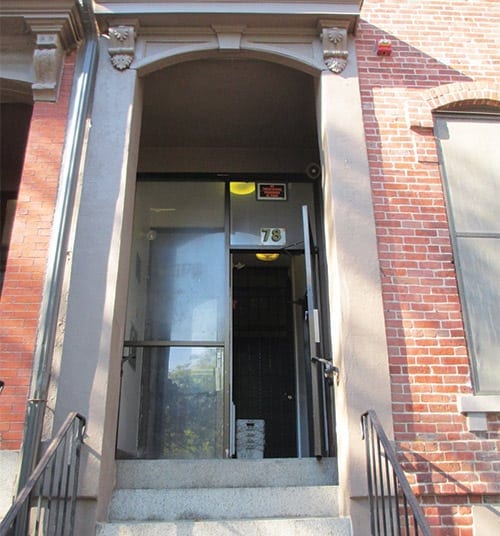
With federal dollars drying up, the Boston Housing Authority is expanding its partnerships with private developers and nonprofits to secure needed renovations for its buildings. The latest example: an affiliation with Inquilinos Boricuas en Acción to renovate 24 historic brick townhouses at West Newton and Rutland Streets in the South End.
The relationship will enable a higher level of redevelopment than the BHA could achieve on its own budget. IBA plans to make improvements to kitchens, bathrooms, flooring, windows, building exteriors and common areas; upgrade the heating and cooling systems; cultivate landscaping and improve energy efficiency.
There are 146 units on the property and the work is projected to cost $19.7 million. IBA is contributing $3.75 million in equity toward this. The rest of the funds will be supplied through a 4 percent low-income housing tax credit as well as federal and state historic tax credits.
IBA beat out two other developers in a request for proposals. Kate Bennett, deputy administrator for planning and sustainability at the BHA, said that one factor that drew the BHA to IBA’s proposals is that the nonprofit does not plan to seek state and city subsidies. These limited resources often generate stiff competition.
“Those [city and state subsidies] are highly desirable scarce resources with a lot of people in line for them,” Bennett said.
Once IBA completes the project, the BHA will transfer ownership of the property to the nonprofit, while retaining a 99-year lease on the land, Bennett said. The agreement stipulates that the units remain affordable to very low-income people, something Bennett and Vanessa Calderón-Rosado, CEO of IBA, said is deeply important.
Last Tuesday, members of IBA met with residents and the BHA to discuss plans and intended to hold several future community sessions. During 2016, IBA will pursue financing for the project. Calderón-Rosado said she expects renovations will then take about two years to complete.
IBA also will provide services ranging from preschool to programs for the elderly.
The West Newton/Rutland Streets site is adjacent to Villa Victoria, IBA’s 435-unit affordable housing community.
“[West Newton/Rutland] is part of our neighborhood, our community,” Calderón-Rosado said. “This is a very important project for the neighborhood and IBA and were’ very excited about it.”
Push for partnerships
The BHA faces budget struggles after years of reduced funding from the federal Department of Housing and Urban Development. Reductions to the BHA’s capital funding — used for repairs that go past day-to-day maintenance — and operating funds has restricted the agency’s ability to make many repairs to its properties beyond threshold safety needs or emergency work, Bennett said.
“The work IBA will do at West Newton is much more comprehensive and will include real top-bottom renovation,” she said. “There is no question that we would have much more limited activity at all of our sites if we weren’t engaging in these partnerships.”
Following a suggestion from HUD, in 2014 the BHA issued a request for qualifications in which the agency asked that nonprofit and for-profit developers submit ideas on how to utilize BHA sites in high-market neighborhoods in ways that would preserve or expand its affordable units.
The RFQ received strong responses from potential partners, Bennett said.
“There haven’t been challenges to finding good partners,” she said. “We’ve had a tremendous level of interest and a lot of neighborhood support for these [partnership] initiatives. We’ve found there’s a lot of interest in the development community from both nonprofit and for-profit companies interested to work with us on our terms.”
Calderón-Rosado said in the future, IBA would be interested in exploring more partnership opportunities with the BHA.
Other projects
The BHA has three other partnership projects in process.
In October, the agency selected Corcoran Jennison Cos. and SunCal for a $1 billion redevelopment project at Bunker Hill. The 24-acre site is the BHA’s largest public housing development and houses 1,100 very-low- income affordable units.
The developers proposed replacing these apartments with 960 units at similar rents, constructing a 300-unit building for seniors and adding approximately 1,400 market-rate units, according to The Boston Globe. Bennett said that the BHA currently is working closely with residents to develop a vision for the site and is starting the necessary financing and regulatory work.
Redevelopment also is planned for 125 Amory Street, on the Jamaica Plain/Roxbury border. The 181-unit site houses individuals who are elderly and disabled. BHA members selected Jamaica Plain Neighborhood Development Corporation and Urban Edge as the builders.
Next on the list is redevelopment of Lenox Street/Camden Street in the South End. The BHA currently is reviewing five proposals for redeveloping the site and likely will select one in early 2016, Bennett said.






